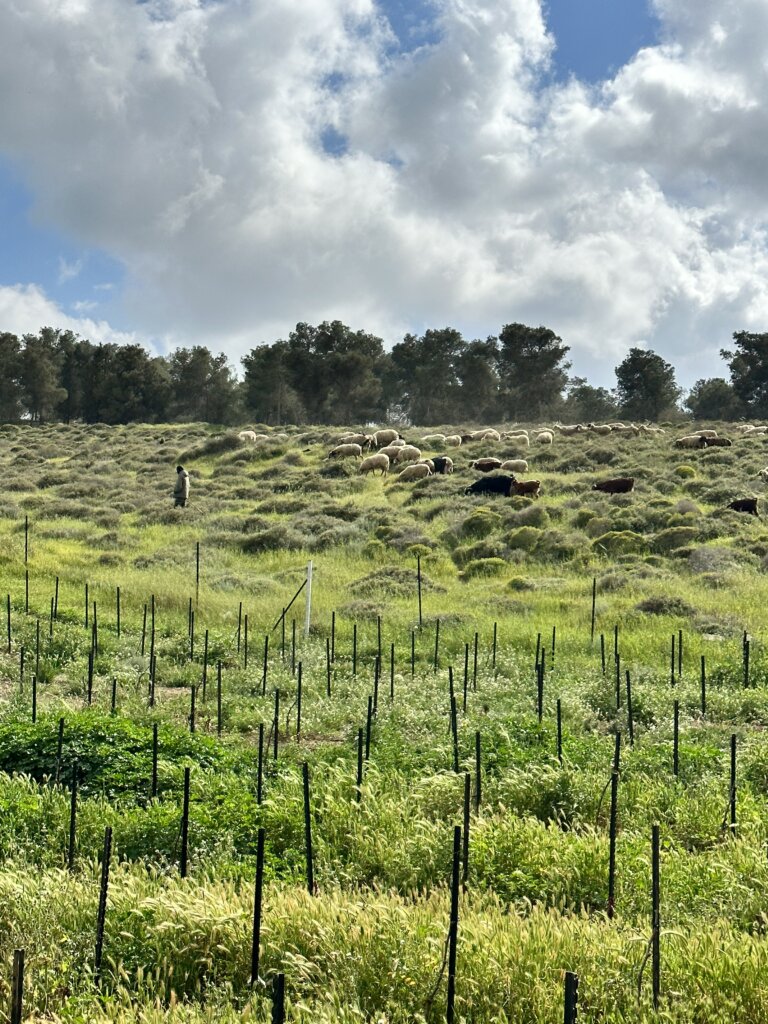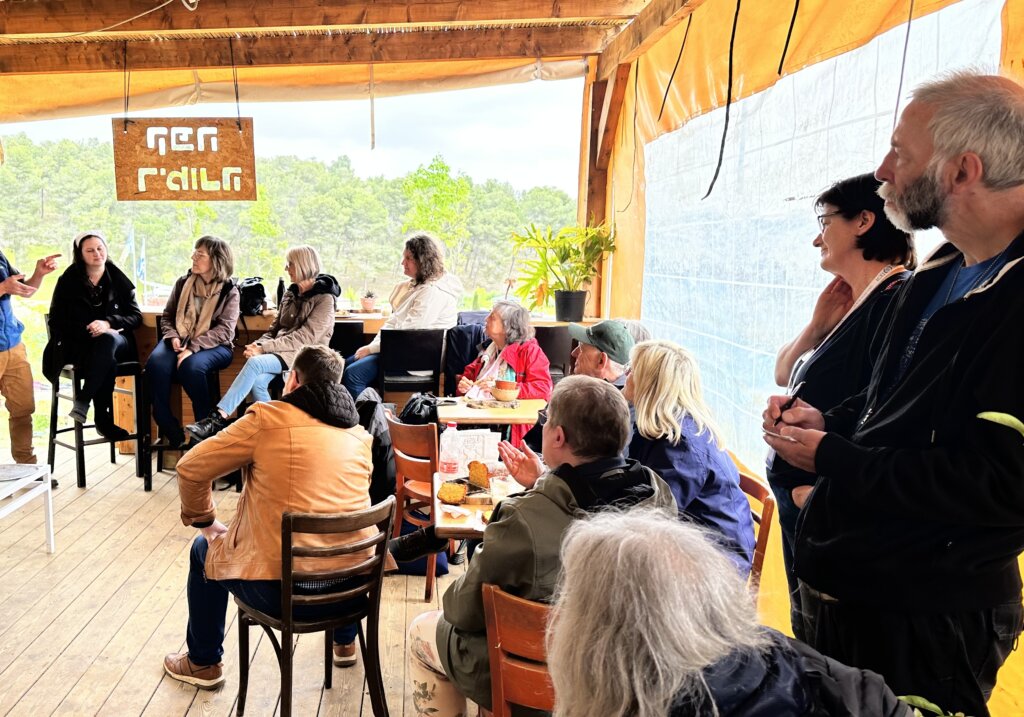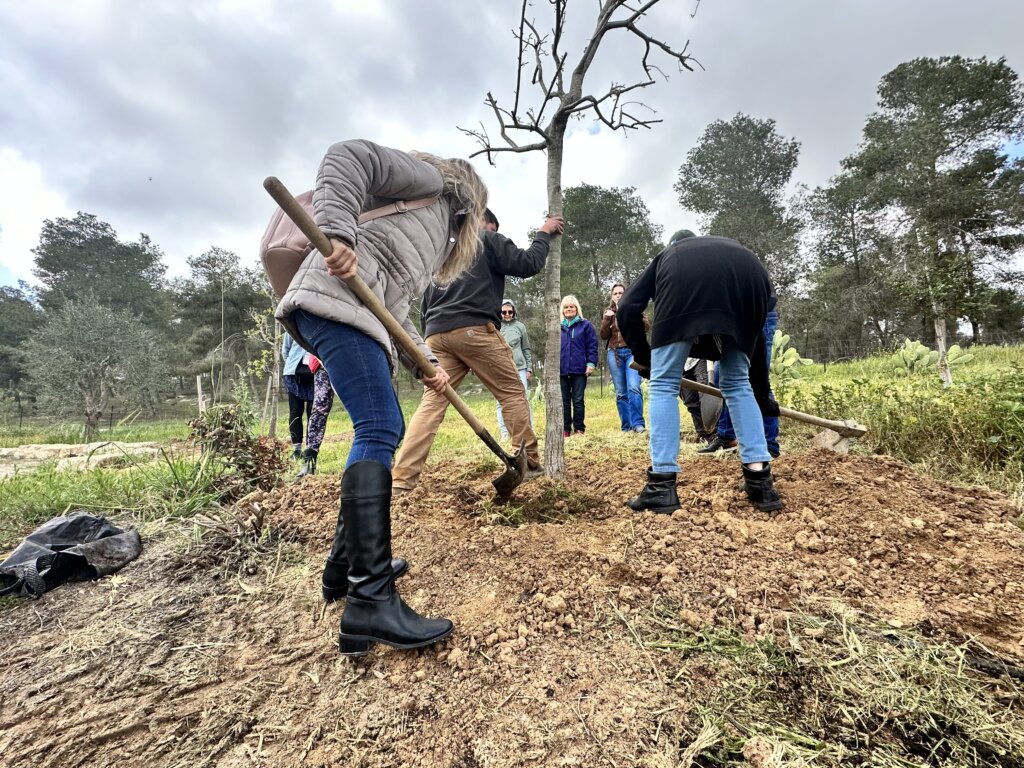
Finding freedom from trauma on Rimon Farm
Published on: 26.3.2024By Marelinke van der Riet
Israel is no stranger to adversity and trauma. From Haman’s genocidal plot in ancient times to more recent horrors like the Holocaust and the current threats of Hamas and Hezbollah, the Jewish people have faced daunting challenges throughout their generations.

Recently, an ICEJ delegation from our German branch and Jerusalem staff visited a trauma therapy center situated on Rimon Farm, near Beersheva, which the Christian Embassy is supporting. The unique farm features impressive vineyards, olive orchards, and lush artichoke fields. Here, therapeutic retreats and group therapy sessions offer solace and support to Israelis in urgent need of trauma care, while doing so in a pastoral farm setting.
Since the Hamas massacres of October 7, the demand for mental health professionals in Israel has surged dramatically. The need to address stress and trauma in this nation has become an absolute necessity, especially as nearly every IDF soldier returning from the battlefield grapples with some form of Post-Traumatic Stress Disorder (PTSD). Therapy is crucial not only for those who directly experience trauma, but also for individuals who have lost loved ones, emergency first responders who have encountered intense suffering, soldiers of all stripes, and of course released hostages, among others.
The ICEJ is presently sponsoring farming trauma therapy for two specific groups – residents of Kibbutz Be’eri, where many were killed and others taken hostage (with several still awaiting release), and volunteers with United Hatzalah, a nationwide network of emergency medical responders that provides free paramedic services throughout Israel. Most notably, the group from Kibbutz Be’eri was one of the first to do a therapeutic retreat following the tragic events of October 7.
Nir Amitai, co-founder of Rimon Farm, highlighted the importance of already considering the aftermath of the conflict even amidst the ongoing battles.
“Suddenly, October 7 happened,” he stated. “We realized that while they are fighting, we need to think about the day after the war. Many will come back with PTSD.”

The need in Israel for mental health professionals is urgent, and it is clear the demand will be here in the years to come, despite the soaring costs of medical treatments.
Nir outlined Rimon Farm’s plans for future expansion, including Lahav Farm, which is already operational, with a goal to receive over 3,000 individuals for therapy in 2024. Some will undergo short-term treatment, while others will seek more long-term care. Additionally, Rimon aims to establish more therapy farms in the western Negev.
Reflecting on the support received from ICEJ, Nir was grateful that, “thanks to you, we can help people get back to normal life. It’s not a quick process; it’s a journey. We cannot do it alone. With your support, we are not alone. Words cannot describe what I feel. Thank you so much.”
“I’m doing it so that I can have a normal life,” Nir added. “It’s not a choice. It’s what God told me to do.”
Doris Lüke, who came on the ICEJ-Germany solidarity tour, echoed this sentiment.

“It’s amazing what Israel has done with the country that God has given them,” she exclaimed. “At times, I feel helpless, but my love for this country runs deep. I must bring information back to Germany to awaken fellow Christians. This is how I fight against Hamas. Israel, we stand in solidarity with you. You are not alone!”
The visit concluded with participants of the ICEJ-Germany solidarity tour planting oak trees in memory of those who fell on October 7.
Please consider a generous gift to the ICEJ as we continue to reach out to a hurting nation with a balm of healing and understanding. Support the ICEJ’s Israel in Crisis fund.
Donate today at: give.icej.org/crisis